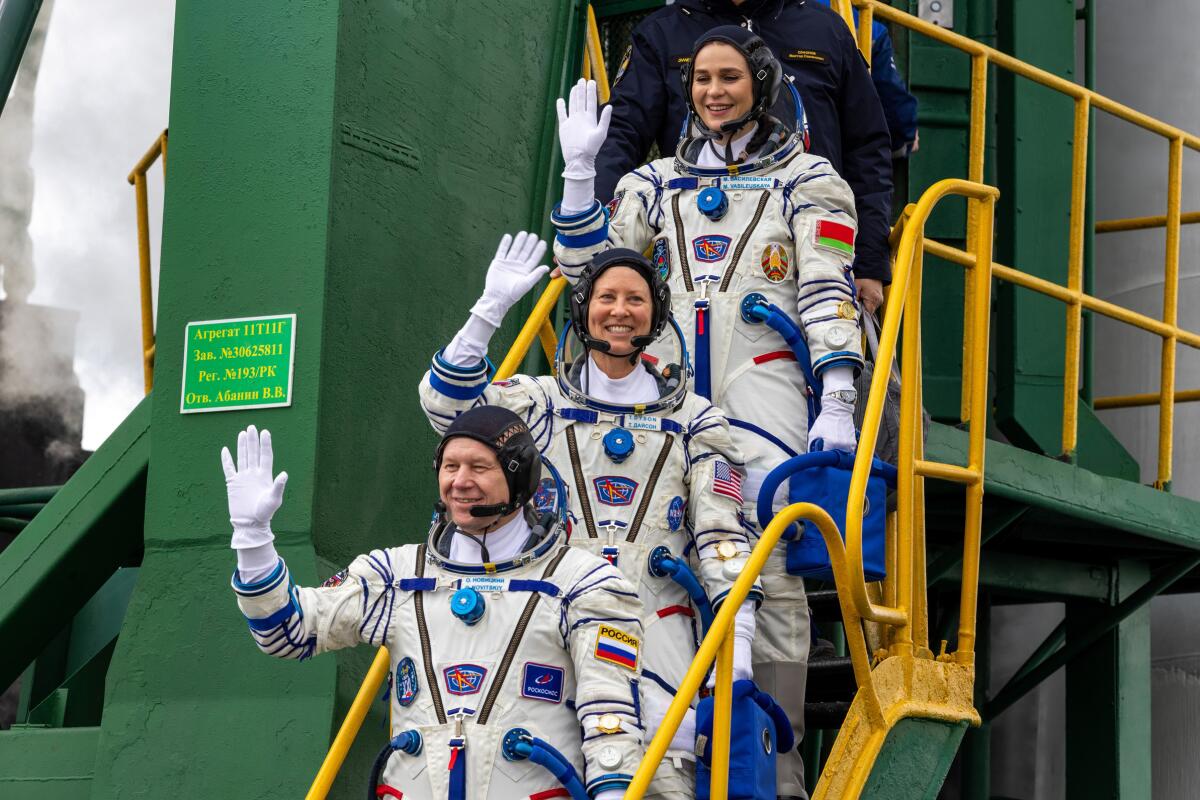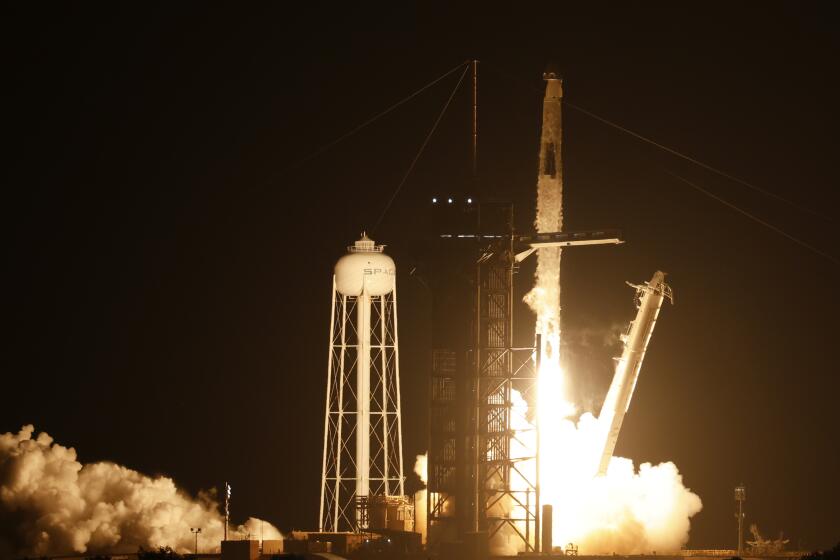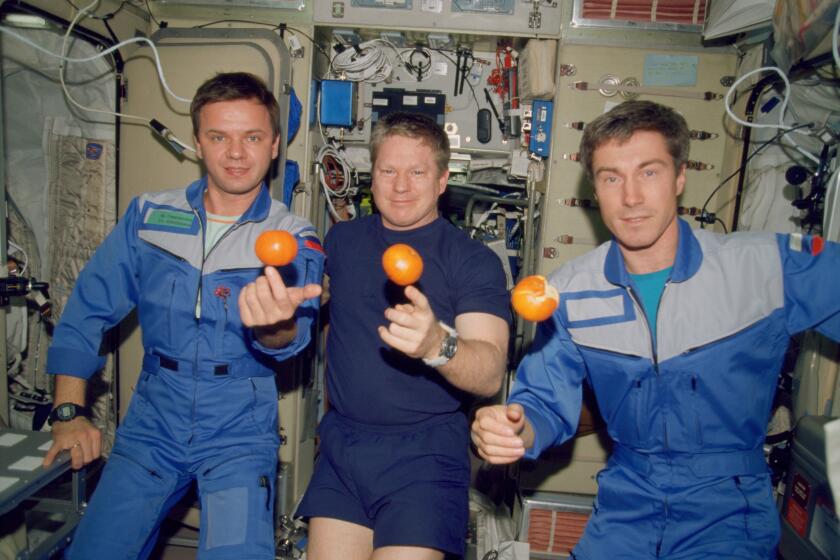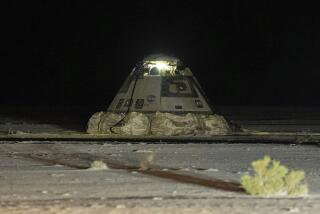Crew of 3 safe after Russia aborts launch to space station moments before liftoff

MOSCOW — Russia aborted the launch of three astronauts to the International Space Station moments before they were scheduled to lift off Thursday, but the crew was safe, officials said.
A Russian Soyuz rocket was to carry NASA astronaut Tracy Dyson, Oleg Novitsky of Roscosmos and Marina Vasilevskaya of Belarus from the Russian-leased Baikonur launch facility in Kazakhstan.
The launch was aborted by an automatic safety system about 20 seconds before the scheduled liftoff at 6:21 p.m. local time. Russia’s Roscosmos space corporation and NASA said the crew was safe, and Roscosmos chief Yuri Borisov said the next launch attempt is set for Saturday.
Borisov told reporters that engineers quickly pinpointed the cause of the aborted launch: a voltage drop in a power source.
Four astronauts from four countries are speeding toward the International Space Station after a SpaceX rocket with the Crew Dragon spacecraft lifts off from Kennedy Space Center.
The space station, which has served as a symbol of post-Cold War international cooperation, is now one of the last remaining areas of collaboration between Russia and the West amid tensions over Moscow’s military action in Ukraine. NASA and its partners hope to continue operating the orbiting outpost until 2030.
Dyson is making her third trip to the ISS, where she is due to spend six months. Novitsky, making his fourth flight to the space station, and Vasilevskaya, on her first space mission as her country’s first astronaut, were set to return to Earth after spending 12 days in orbit.
The three astronauts are to join the station’s crew consisting of NASA astronauts Loral O’Hara, Matthew Dominick, Mike Barratt and Jeanette Epps, and Roscosmos cosmonauts Oleg Kononenko, Nikolai Chub and Alexander Grebenkin.
Russia has continued to rely on modified versions of Soviet-designed rockets to launch commercial satellites, as well as crews and cargo to the space station.
The International Space Station marks a big milestone Monday.
While the crew apparently wasn’t in danger, Thursday’s aborted launch was a significant mishap for the Russian space program.
It followed an Octюber 2018 launch failure, when a Soyuz rocket carrying NASA astronaut Nick Hague and Roscosmos’ Alexei Ovchinin to the space station failed less two minutes after blastoff, sending their rescue capsule into a steep ride back to a safe landing.
The 2018 launch failure was the first such accident for Russia’s manned program in over three decades.
More to Read
Sign up for Essential California
The most important California stories and recommendations in your inbox every morning.
You may occasionally receive promotional content from the Los Angeles Times.












